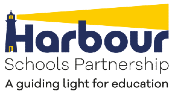UKS2 (Ages 9-11)
In UKS2 (Year 5 and 6) the curriculum continues to be underpinned by the Marwood School core values and subjects being grouped within four areas of learning:
- The Arts (English, Art and Music)
- STEM (Mathematics, Science, Computing and Design and Technology)
- Humanities (Geography, History and Religious Education)
- Physical and Social Development (PE, PSHE and RSE)
Summary of Upper Key Stage 2 (Year 5 and 6) Curriculum for Parents/Carers
The Arts
English
- Reading: Pupils read a wide range of texts, including fiction, non-fiction, and poetry, to develop comprehension and critical thinking skills.
- Writing: Focus on writing for different purposes and audiences, with an emphasis on planning, drafting, and editing. Pupils also work on spelling, punctuation, and grammar.
- Spoken Language: Developing skills in speaking and listening through discussions, presentations, and debates.
Art and Design
- Developing creativity and skills in various art forms, including drawing, painting, and sculpture.
- Pupils also learn about great artists and their work and evaluate their work in more detail.
Music
- Performing and composing: In Years 5 and 6, pupils develop their performing and composing skills by creating and performing music individually and in groups, using a variety of instruments and vocal techniques
- Listening and appraising: They also enhance their listening and appraising skills by critically evaluating a wide range of music, identifying key elements and expressing their opinions.
STEM (Science, Technology, Engineering and Mathematics)
Mathematics
- Number and Place Value: Pupils learn to understand and work with numbers up to and beyond 1,000, including place value, rounding, and comparing numbers. They also practice counting in multiples of 4, 8, 50, and 100.
- Addition and Subtraction: Children develop various methods for adding and subtracting numbers, including mental arithmetic and written methods. They solve problems involving these operations in different contexts.
- Multiplication and Division: Focus on mastering multiplication tables up to 12x12 and using these skills to solve problems. Pupils learn different strategies for multiplying and dividing larger numbers.
- Fractions: Introduction to fractions, including recognising and finding equivalent fractions, comparing and ordering fractions, and performing simple calculations with fractions.
- Measurement and Geometry: Understanding and using units of measure for length, mass, volume, and time. Pupils also learn about shapes, their properties, angles, and spatial reasoning.
Science
- Working Scientifically: In Years 5 and 6, pupils work scientifically by planning and conducting investigations, taking accurate measurements, recording data in various formats, and using evidence to draw conclusions and make predictions.
- Biology: Pupils explore living things and their habitats, including life cycles and classification.
- Physics: Pupils learn about forces, electricity, light, and sound.
- Chemistry: Pupils understand properties and changes of materials, including reversible and irreversible changes.
Computing
- Children learn to use technology safely and effectively and the impact of technology on society.
- Children learn more about coding, how to create games and use external devices as part of Computer Science.
- Children learn about spreadsheets, databases and 3D modelling as part of Information Technology.
Design and Technology
- Practical Skills: In Years 5 and 6, pupils engage in Design and Technology (DT) by designing and making products using a range of materials and techniques, while also learning about the importance of functionality and aesthetics.
- Evaluation: They learn to evaluate their own and others’ work, considering how it can be improved.
Humanities
Geography
- Locational Knowledge: Pupils learn about the location and characteristics of significant places around the world, including the United Kingdom, Europe, North and South America. This includes understanding key physical and human features.
- Physical Geography: Topics include climate zones, biomes, vegetation belts, rivers, mountains, volcanoes, earthquakes, and the water cycle.
- Human Geography: Pupils study types of settlement and land use, economic activity including trade links, and the distribution of natural resources such as energy, food, minerals, and water.
- Geographical Skills and Fieldwork: Developing skills in using maps, atlases, globes, and digital/computer mapping to locate countries and describe features studied. Pupils also conduct fieldwork to observe, measure, record, and present the human and physical features in the local area using a range of methods
History
- Chronology: Children learn about significant periods and events in British and world history, such as the Viking and Anglo-Saxon struggle for the Kingdom of England and aspects of history post-1066 such as World War II.
- Historical Enquiry: They use various sources to investigate the past and understand how historical events have shaped the present.
Religious Education
Physical and Social Development
Physical Education (PE)
- In Years 5 and 6, pupils enhance their physical skills through a variety of sports and activities, focusing on improving fitness, coordination, and teamwork.
- They also learn about the importance of maintaining a healthy lifestyle and the benefits of regular physical activity.
Personal, Social, Health and Economic Education (PSHE)
- PSHE: In Years 5 and 6, PSHE (Personal, Social, Health and Economic education) focuses on helping pupils understand and manage their emotions, build healthy relationships, and make informed decisions about their health and wellbeing.
- RSE: RSE (Relationships and Sex Education) teaches pupils about the physical and emotional changes of puberty, the importance of consent, and how to maintain respectful and healthy relationships.
Curriculum Map (2024-25)
Below you will find a curriculum map for 2024-25.
If you would like to know more about this, please speak to Mrs Smales or Dr Boon (Class 4 teachers).



